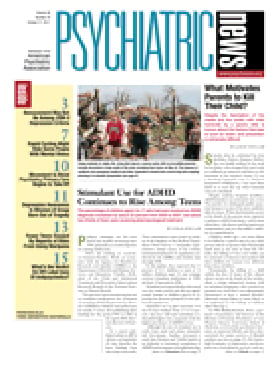The New York University Child and Adolescent Mental Health Studies program brings faculty from the university's medical school to teach college undergraduates about children's development, health, and illness.
Students can now elect a minor in the program, and some may go on to careers in the child mental health field, but the larger value of the program is the increased knowledge and insight it provides for future parents and future professionals of any stripe, said program director Jess Shatkin, M.D., M.P.H., an associate professor of child and adolescent psychiatry and pediatrics, and director of education and training at NYU's Child Study Center, part of the Langone Medical Center.
Many of the program's instructors are fellows or members of the faculty of the Department of Child and Adolescent Psychiatry in the university's medical school. Others come from the university's psychology department.
The program began in 2000 with a one-credit short course on stress.
However, interest rose after a cluster of seven suicides on the university's Washington Square campus in 2003-2004 brought the issue of youth mental health to the forefront, said Harold Koplewicz, M.D., then the chair of the Child Study Center and now president of the Child Mind Institute in New York.
"We quickly found that medical faculty members enjoyed teaching undergraduates," said Koplewicz.
As a bonus, the faculty members soon became a resource on campus, helping to destigmatize mental illness. Often, students would drop by to talk about their own problems, said Koplewicz.
The courses were organized into a more formal program of 15 courses in 2006 that allowed students to elect a minor in child and adolescent mental health studies.
Today the program has 25 four-credit-hour courses taught on a rotating basis during both regular semesters and in a summer session.
"More than 900 students signed up for the fall 2011 semester," said Shatkin.
Some courses have no prerequisites, like "The Science of Happiness," which focuses on college student mental health and wellness. However, the basic course for the minor does require taking an introductory psychology course first.
With that completed, students can study child and adolescent psychopathology and treatment, research methods, and developmental neuroscience. Some courses from neural science, psychology, sociology, and education can be applied to the minor as well.
Mental health falls into the subject areas of multiple departments in the undergraduate spectrum, including psychology, sociology, anthropology, and neuroscience. Thus it is unlikely that without some umbrella, departments would not have collaborated, so it helped to create the infrastructure under the medical school's psychiatry department.
"There are four big lecture courses, but about half the courses are taught as seminars," said Shatkin. Students can also use campus resources beyond the classroom. The class on child and adolescent psychopathology sends them to the university's child study center to observe a clinician evaluating a child, after which they write up their own assessments.
Or they may help out at lunch hour or in an after-school program at a school for autistic children.
Perhaps a few eventually might become psychiatrists, psychologists, or social workers and help alleviate the well-publicized shortage of child mental health specialists, but recruiting people into the mental health professions isn't the intention of the program.
The courses may benefit the students as they embark on their own lives as future parents and citizens, said Shatkin, who is beginning a study to document outcomes among students in the program.
"The value of the courses is not only that young people will be better informed and more understanding of people with mental health problems, but that they they might become better advocates for children's health in general," said Koplewicz.

